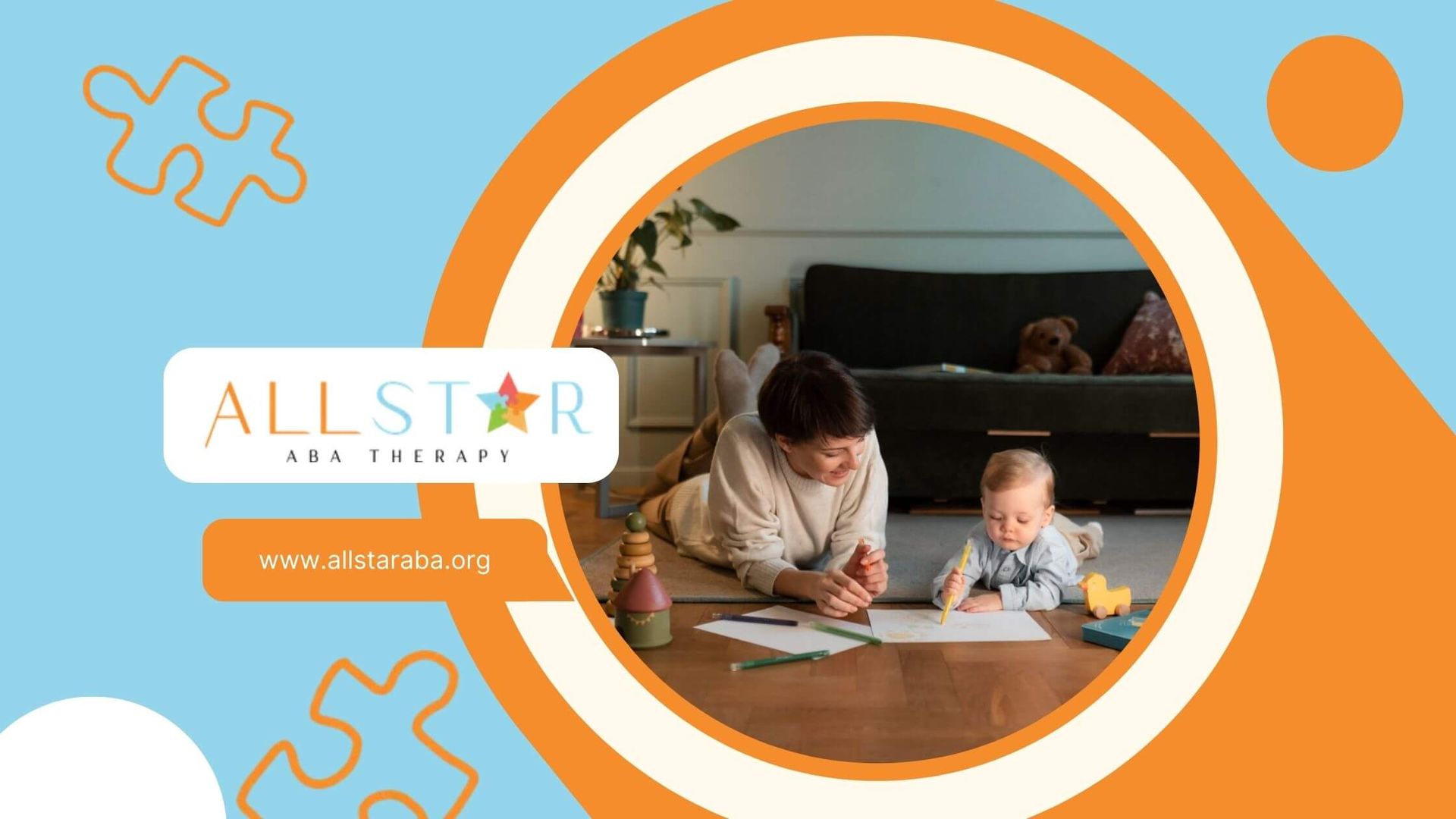New Paragraph
I Hate My Autistic Husband: Tips to Cope
When you're in a relationship with someone on the autism spectrum, daily life can sometimes feel confusing or emotionally draining—especially if you're unsure how to respond to differences in communication or emotional needs. These experiences are not uncommon and often reflect deeper patterns that are part of the broader autism spectrum.
Understanding those patterns is key, and resources like autism support services or personalized ABA therapy programs can provide valuable guidance. In this guide, we’ll walk through the emotional and behavioral dynamics you may encounter and offer practical, research-backed strategies for fostering empathy, communication, and connection.
Understanding Autism in Relationships
Navigating a relationship where one partner is on the autism spectrum can present distinct challenges. These challenges often revolve around communication and emotional expression.
Communication Challenges
Individuals on the autism spectrum often face significant difficulties with verbal communication, which can impact their relationships. They may process information slowly, interpret words literally, and struggle to stay on topic during conversations. Social skills and understanding social cues, such as eye contact and body language, are also commonly impacted.
Clear, calm, and predictable communication can help in managing these challenges. Non-verbal communication is particularly difficult for those on the autism spectrum, so using visual aids alongside verbal communication can aid in better understanding.
Emotional Expression Variances
Emotional conversations are often difficult for people on the spectrum due to a different experience of emotions compared to neurotypical individuals. An autistic spouse may not know how to respond to emotional expressions and might seem dismissive when, in fact, they simply do not know what to do. They often interpret expressions of emotion as problems to be fixed rather than understanding them as a need for emotional support.
In some cases, outside support—such as guidance from professionals familiar with ABA therapy in Maryland—can help families navigate these moments with greater understanding and patience.
Approaching these conversations with
straightforward statements and clearly expressing what you need can improve communication. For example, saying “I feel
when you
” can help spell out the emotional context for your partner. Writing down your feelings or being direct without being accusatory can also be beneficial.
By better understanding these communication and emotional expression variances, partners can develop strategies to navigate their relationships more effectively and compassionately.
Coping Strategies for Partners
Creating Clear Communication
Effective communication is vital when coping with an autistic spouse. Individuals on the autism spectrum often experience difficulties with verbal communication. They may process information slowly, interpret words literally, and struggle to maintain focus during conversations. Clear and concise communication methods can alleviate misunderstandings.
Strategies for Clear Communication:
- Use Simple Language: Avoid metaphors and figures of speech; be straightforward and specific.
- Visual Aids: Utilize written notes or visual cues to support verbal instructions.
- Be Patient: Allow time for your spouse to process and respond to the information.
Managing Emotional Disconnect
Managing emotional disconnect is another significant challenge in relationships involving autism. People on the spectrum experience emotions differently from neurotypical individuals. Your spouse may not be dismissing your feelings; they may just not know how to respond to emotional situations.
Techniques for Managing Emotional Disconnect:
- Spell It Out: Use clear, direct statements like, "I need you to listen to me… I feel when you ."
- Practical Expressions of Love: Understand that your autistic spouse may show love through actions rather than traditional means. Brain scans have shown differences in how autistic individuals express love and empathy.
By applying these coping strategies, partners can foster better communication and understanding in their relationships, thus enhancing the overall dynamic with their autistic spouse.
Supporting an Autistic Spouse
Supporting an autistic husband involves understanding key aspects of his needs and behaviors. This section will cover two important areas: understanding special interests and dealing with change and routine.
Understanding Special Interests
Autistic individuals often have deep, intense interests in specific areas. These special interests can sometimes lead to frustration or feelings of neglect for their spouses. However, it is important to recognize that these interests are not only a source of joy for them but also serve as a crucial coping mechanism.
Supporting an autistic partner’s interests involves:
- Allocating time for them to engage in their interests.
- Showing genuine interest by asking questions and expressing appreciation.
- Understanding that these interests are vital for their mental well-being.
Special interests may lead to "oversharing," where the autistic person talks excessively about their passion. This can be managed by setting boundaries in a gentle and understanding manner. Respecting and valuing these interests can foster a more harmonious relationship.
Dealing with Change and Routine
Change can be particularly challenging for autistic individuals. Even minor changes can cause significant distress. They often rely on routines and repetition to provide comfort and stability in their daily lives.
Strategies to support your husband through changes include:
- Providing clear and timely communication about upcoming changes.
- Using visual schedules or written plans to outline the steps involved in change.
- Being patient and offering reassurance during transitions.
Additionally, autistic individuals may need significant recovery time following social interactions. For some, an hour of socializing might require an hour of solitude to recuperate. Understanding and accommodating this need can help prevent feelings of overwhelm and social burnout.
Supporting an autistic spouse involves a balance of empathy, patience, and strategic planning. By understanding special interests and coping with change and routines, you can create a more supportive and nurturing environment for both you and your partner.
Seeking Professional Help
Addressing Executive Function Deficits
People on the autism spectrum often experience executive function deficits, which can affect abilities such as planning, organizing, time management, and impulse control. These challenges are frequently misconstrued as a lack of motivation or behavioral issues. This misunderstanding can lead non-spectrum partners to take on many of the executive function tasks within the relationship.
Seeking therapy from professionals who understand Autism Spectrum Disorder (ASD) and neuro-diverse relationships can help address these issues. Cognitive Behavioral Therapy (CBT), particularly when adapted to be structured, concrete, and visual, can be effective in managing executive function deficits. This approach helps in creating strategies that are easier to follow and adhere to.
Managing a relationship with an autistic partner can be challenging, but finding the right support is key. ABA services near you can provide personalized strategies to improve communication and help create a more balanced relationship. Take the first step towards understanding and growth by reaching out to local ABA service providers today to discover how they can support you and your partner.
Managing Sensory Processing Issues
Sensory processing issues in individuals with autism can include hypersensitivity or hyposensitivity to various stimuli such as light, sound, touch, taste, and smell. These sensory challenges can significantly impact daily life and relationships, leading to misunderstandings and frustration.
Professional interventions that can be beneficial include:
- Occupational Therapy (OT): OT can help individuals develop strategies to manage sensory sensitivities. Therapists can work on sensory integration techniques that assist in coping with everyday sensory overload or deprivation.
- Sensory Diets: Customized activities designed to meet the sensory needs of the individual, aimed at helping them stay regulated throughout the day.
Addressing these sensory processing issues with appropriate professional help can lead to a more harmonious and understanding relationship, making it easier to manage daily challenges and improve overall well-being.
Enhancing Relationship Dynamics
Establishing a harmonious relationship with an autistic husband involves shaping mutual understanding and maintaining a balance between support and self-care. Here are some strategies to enhance your relationship dynamics effectively.
Building Mutual Understanding
Mutual understanding is the cornerstone of any healthy relationship, especially when one partner is on the autism spectrum.
Clear and Predictable Communication
Communicating explicitly and concretely helps bridge social communication gaps. Providing step-by-step instructions, discussing expectations in detail, and even incorporating visual aids like notes, email, or whiteboards can facilitate effective communication. This approach minimizes misunderstandings and lays down clear expectations for both partners.
Acknowledging Strengths and Weaknesses
Recognize that different strengths and weaknesses exist in the relationship. Individuals with Asperger's often exhibit loyalty and a unique viewpoint. Inform your partner of strategies that suit both of you instead of trying to change inherent traits that are hard-wired.
Finding Balance and Self-Care
Balancing the emotional needs of both partners and ensuring self-care is vital for sustaining a healthy relationship.
Managing Emotional Disconnect
Autistic individuals might struggle with emotional expression and recognizing social cues. Establish a routine for yourselves where you both have personal space and time to recharge emotionally. Utilizing sensory aids can also help manage sensory overloads and make your environment more comforting.
Embracing Self-Care
Taking care of yourself is not only beneficial for you but also helps you better support your spouse. Make time for activities that you enjoy and that help you de-stress. Attend support groups where you can share experiences and gain insights from others in similar situations.
By fostering mutual understanding and ensuring personal well-being, you can enhance the dynamics of your relationship while coping effectively with your autistic husband.
All Star ABA is dedicated to providing compassionate and effective ABA therapy for families in Maryland, helping individuals with autism and their loved ones build stronger, more supportive relationships. With tailored strategies and a focus on understanding, All Star ABA can help you navigate the complexities of your relationship and foster a deeper connection.
Reach out today to discover how our expertise can bring lasting change to your family’s dynamic.
Sources:
https://www.autismspeaks.org/blog/autism-and-marriage
https://www.healthline.com/health-news/how-to-live-with-a-spouse-who-has-autism
https://www.everydayhealth.com/aspergers/coping-with-a-partners-aspergers-syndrome.aspx
https://www.autismparentingmagazine.com/partner-on-autism-spectrum/
Need Support?
We're Here to Help!
Our experienced team is ready to assist you. Reach out today to discuss how we can support your child's development and well-being.
Get started with expert ABA therapy today.








